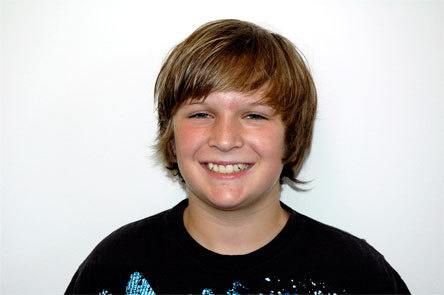MARYSVILLE — Jason Maki just graduated from fifth grade at Sunnyside Elementary, but as he prepares for sixth grade, at either the 10th Street School or Marysville Middle School, at least he can feel confident in his writing abilities.
Maki recently won second place in the National Park Foundation’s 2009 Junior Ranger Essay Contest, in which essay writers aged 9-12 from across the country were asked, “Why are our national parks important to you, and what is your best idea to protect our parks for the future?”
More than 400 essays were submitted, between March 16 and May 1 of this year, for the third annual contest, and all of the winning essays will be featured in the 2009 Junior Ranger Gazette. As the second-prize winner, Maki also received a $500 Visa gift card, an “America the Beautiful” pass and the opportunity to direct a $2,000 contribution from the National Park Foundation to his favorite national park. He chose Grand Teton National Park.
Jason’s father, Jeffrey, pitched the contest to his 11-year-old son as an opportunity to make some money, but Jason was inspired just as much by his aunt’s years of service as a National Park Ranger, as well as the rest of his father’s “wilderness-friendly” family in Montana.
In his essay, Jason Maki deemed national parks repositories of both his own memories and “natural treasures,” and noted that pictures or videos of national parks cannot recreate the experience of seeing one in person. He added that national parks differ from zoos in that national parks allow visitors to see animals in their own natural habitat.
Maki explained that Grand Teton National Park is his favorite because of the diversity of wildlife that he’s seen there, as well as how exciting their behavior was.
“I’ve seen an eagle and an osprey fighting over a fish,” Maki wrote in his essay. “I’ve seen a little baby moose with its mother at the edge of the Snake River. I’ve seen a pair of grizzly cubs wandering out in the middle of a green meadow with their mother close by. And I’ve even seen a rare black wolf running across a snow field. But not all things are exactly what I’d call peaceful. I’ve watched a huge bison lit up against the night sky when lightning struck the mountains. I went swimming with my cousins and came out of a beautiful lake covered in leeches! Ahhhhh! I even was surprised by a black bear 10 feet away when I walked around a pickup truck! Even though I’ve had a few scary experiences, it should never stop you from visiting a national park.”
Maki’s essay went on to advocate stewardship and respect for national parks, since they offer “things that you could never experience anywhere else,” by following their rules. He urged national parks visitors to refrain from littering or feeding the animals, and to put out campfires with water. He also proposed asking school children to submit suggestions “to protect and preserve our national parks,” and encouraged other children to visit national parks, because “I know they will enjoy every moment.”
Maki wrote the essay over the course of two days of class time, and his father retyped it. Maki estimated that he spent a total of 45 minutes writing the essay, and 20 minutes editing it with his father. Jason’s mother, Debbie, reported that the judges told her they selected her son’s entry because “they could tell it was written by a kid, and with most of the essays, they could tell that a parent wrote it.”
According to Debbie Maki, the judges stated that they wanted a child’s perspective, “and not a polished adult standpoint,” because children value national parks for different reasons than adults, and because getting children to think more about national parks can help increase national park attendance and stewardship.
“Kids have an excitement about national parks that we can all take a lesson from,” said Vin Cipolla, vice chair of the National Park Foundation. “Young people who are given the chance to explore and spend time in national parks have a unique passion about the parks and the environment. This essay contest is about giving them a microphone to tell their stories, so that we will all be reminded about the importance of caring for our national parks.”



